How the Iraq war unleashed jihad and the rise of Isis
The outrage around the invasion became a call to arms, the repercussions of which are still being felt today, writes Kim Sengupta

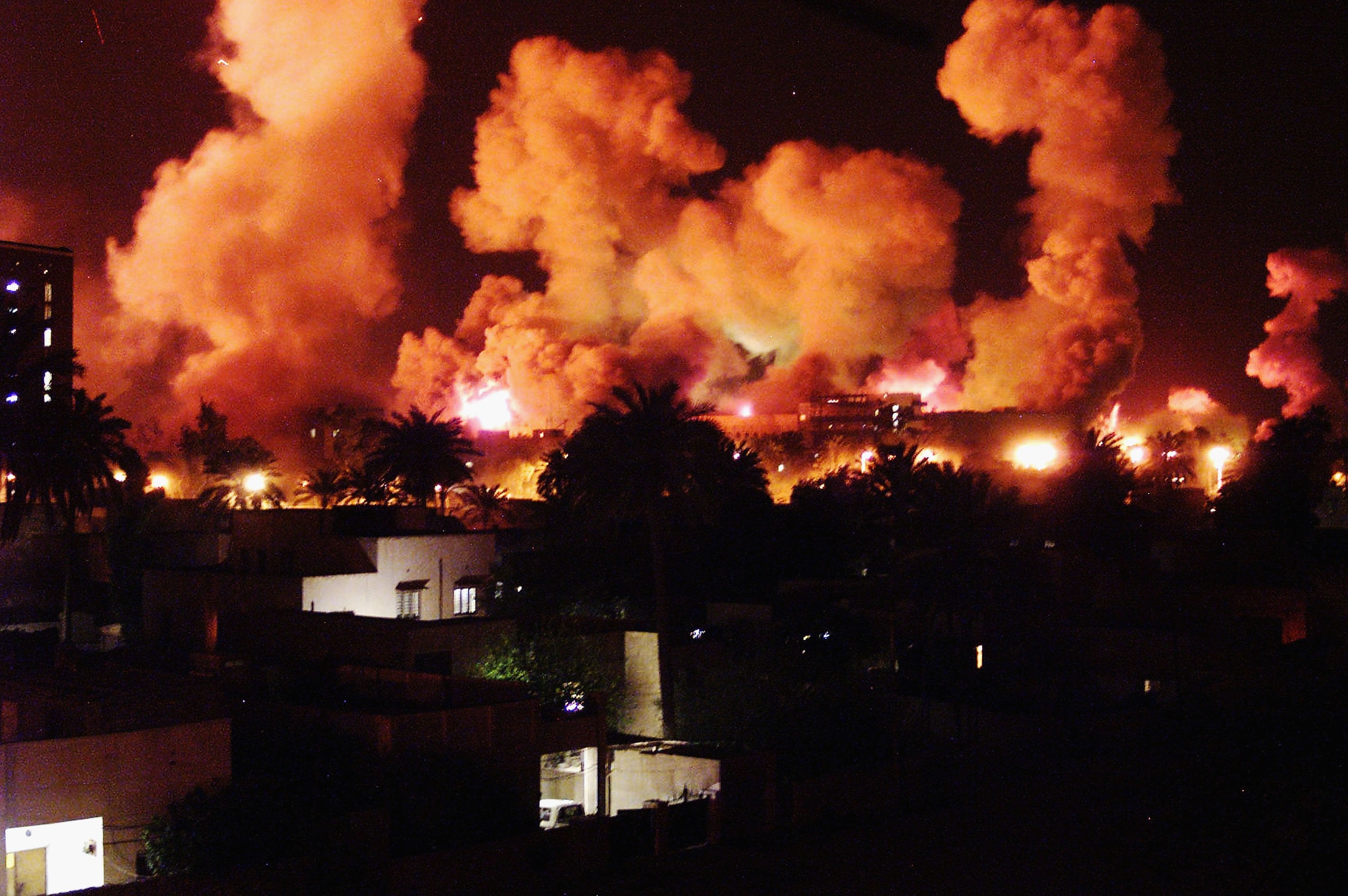
Your support helps us to tell the story
From reproductive rights to climate change to Big Tech, The Independent is on the ground when the story is developing. Whether it's investigating the financials of Elon Musk's pro-Trump PAC or producing our latest documentary, 'The A Word', which shines a light on the American women fighting for reproductive rights, we know how important it is to parse out the facts from the messaging.
At such a critical moment in US history, we need reporters on the ground. Your donation allows us to keep sending journalists to speak to both sides of the story.
The Independent is trusted by Americans across the entire political spectrum. And unlike many other quality news outlets, we choose not to lock Americans out of our reporting and analysis with paywalls. We believe quality journalism should be available to everyone, paid for by those who can afford it.
Your support makes all the difference.On 18 March 2003 the UN team searching for Saddam Hussein’s “Weapons of Mass Destruction” were forced to leave under the deadline for war set by the US and Britain. Two days later barrages of missiles and bombs, “shock and awe,” began one of the most bitterly divisive wars in recent history.
The day before the inspectors pulled out, I met some of them at their headquarters in Baghdad’s Canal Hotel. They were bitterly cynical about what had happened. “It’s what we won’t find that is so worrying the people in Washington and London,” said one of the most senior members of the team. “We needed a bit more time, that’s what they couldn’t allow.”
Five months and a day later the Canal Hotel was blown up in a suicide bombing that killed 22 people and injured a hundred others. Among those to die was Sergio Vieira de Mello, the UN’s Special Representative in Iraq. Abu Musab al-Zarqawi, the leader of an Islamist group, Jama’at al-Tawhid wal-Jihad, claimed responsibility. In the years of mayhem that followed, Zarqawi’s name would become a byword for Islamist terror, and his organisation would go on to spawn al-Qaeda in Iraq and, later, Isis.
The outrage caused by the Iraq War became a call to arms for international jihad the repercussions of which are still being felt today. Islamist terrorist groups continue to use the invasion as one of the reasons for carrying out attacks.
Spain, where the government of Jose Maria Aznar was a vocal supporter of the war, was one of the first to face violent consequences. On 11th March 2004 a series of bombings on the Madrid commuter train system killed 193 people – and injured more than 2,000 others – in the worst terrorist attack in Spanish history.
The Spanish government claimed at first that Basque separatists were responsible for the atrocity. But the claim soon unravelled with mounting evidence that it was an attack by Islamists. An official investigation found that the bombing had been carried out by al-Qaeda in direct response to the invasion.
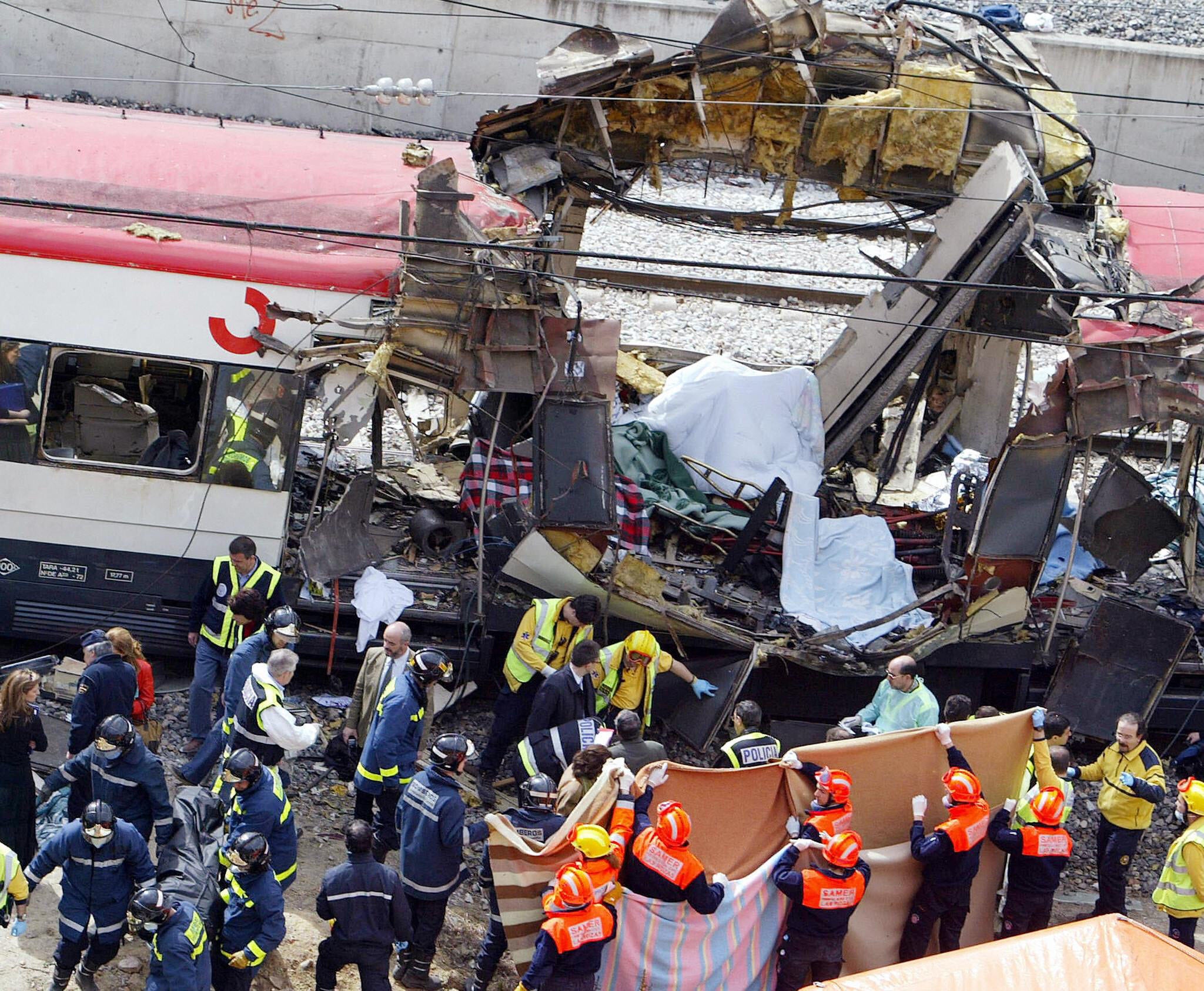
In 2006 an internal report by the Ministry of Defence in London stated as fact what we had long known: “The war in Iraq has acted as a recruiting sergeant for extremists across the Muslim world; Iraq has served to radicalised disillusioned youth and al-Qaeda and has given them the will, intent, purpose and ideology to act”.
The jihad in Iraq was attracting foreign fighters and the violence was spreading to neighbouring countries. The MoD report was written as the UK was preparing to deploy troops to Helmand in Afghanistan where another insurgency was growing. One reason was that US and British troops which were needed to provide security for the country after the overthrow of the Taliban had been switched to Iraq two years later, leaving a vacuum for their fighters to move in.
Zarqawi was a Jordanian and many of his followers were foreign. Three years after the invasion around 70 fighters a month were crossing the border into Iraq, according to US commander, General William Caldwell. They came from Saudi Arabia, Sudan, Syria and Egypt. Some made the trip from Europe, including the UK.
The bitter irony was not lost on those of us reporting the war and its aftermath that it was George W Bush and Tony Blair who first publicly linked Iraq to terrorism by claiming, with spurious evidence, that Saddam was linked to the 9/11 attacks.
As US Marines entered Baghdad after the regime’s fall, I met one wearing body armour emblazoned with the slogan “Payback for 9/11”. When I and my colleagues pointed out there was no link between Iraq and the Twin Towers attacks, he and his comrades looked puzzled. One of them shook his head and said “Hey guys, you’ve been here too long, y’all have been brainwashed.”
The Marines were on their way to toppling the statue of Saddam in nearby Firdos Square. The Americans had gathered local people and bussed in others from Saddam City, a Shia ghetto on the outskirts of the city, to witness what was to become one of the most iconic scenes of the war.
On that day, 9 April, I found myself standing at the Square next to Marine commander Lieutenant Colonel Brian McCoy. A Stars and Stripes was put over the statue’s eyes: it had been flying at the Pentagon on the day of the 9/11 attacks according to the Marine who draped it (another untrue claim as it turned out). Lt Col McCoy ordered it to be replaced by an Iraqi flag. So adorned, the statue eventually came down, after a long struggle, with the aid of an M-88 tank recovery vehicle.
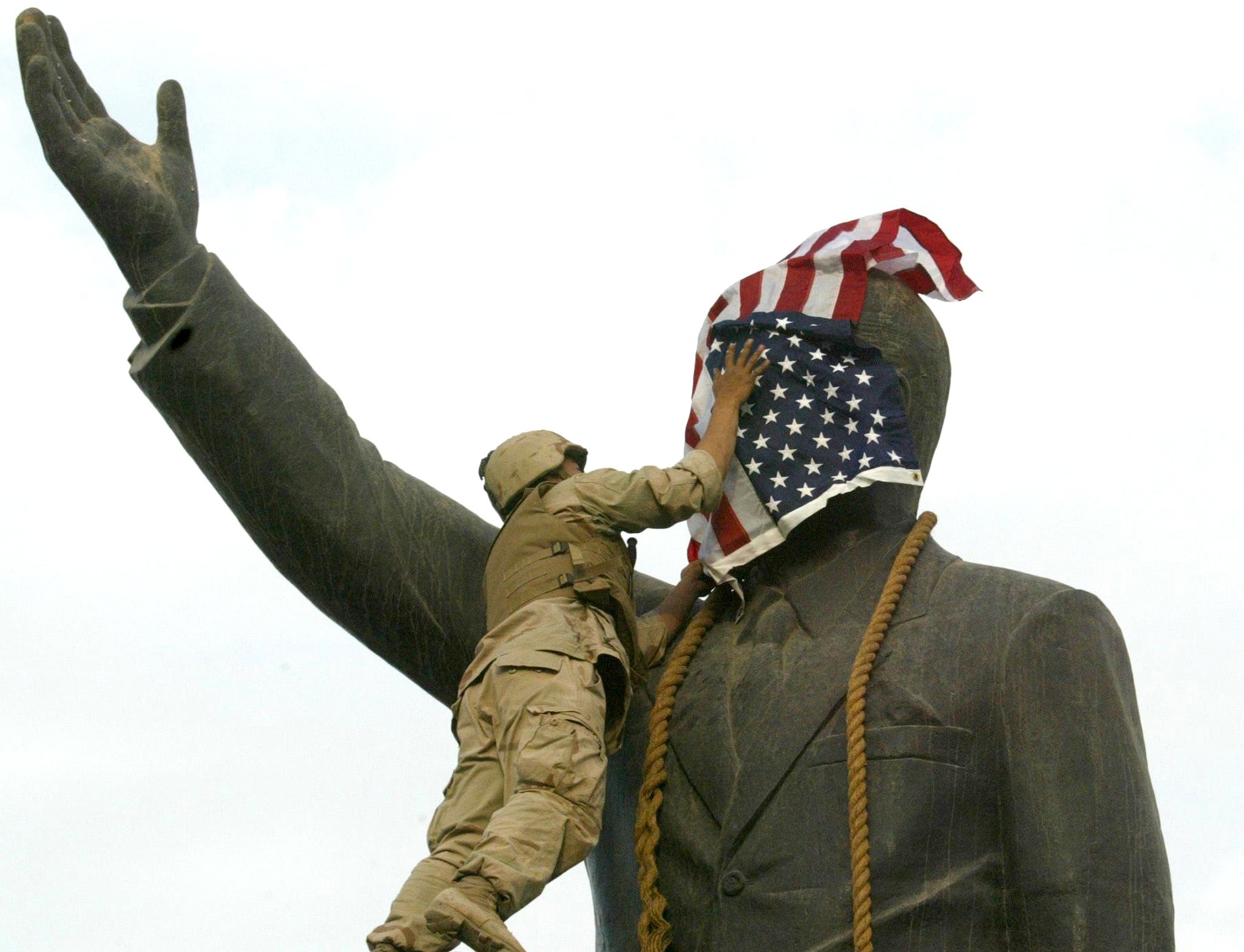
I asked Lt Col McCoy how long he and his marines were staying in Iraq. “As short a time as possible, we have done our bit, did the fighting, got to Baghdad, now it’s time to get out as soon as possible. It wouldn’t be a good thing to hang around,” he said.
How right he was. The next day we saw US Marines standing by as a mob from Saddam City ran riot in the centre of Baghdad. They ransacked ministries, government buildings, art galleries, museums and then private homes.
“We can’t interfere, we are told the guys in DC want this to look like a people’s rebellion” said a Marine captain with a shrug. “Personally, we think it’s a mistake to allow this kind of lawlessness, it sends the wrong message, but we are not the ones deciding.”
The ones making the decisions in the chaotic aftermath of the fall of the regime were neo-cons in the Bush administration in Washington. They effectively sabotaged the work done by the newly set up Coalition Provisional Authority (CPA), the interim Western administration in Baghdad.
The men leading the CPA, US General Jay Garner and his deputy, the British Major General Tim Cross, were trying to establish stability and governance and bring Iraqis into the political process with the aim of a quick handover.
But the neo-cons, Dick Cheney, Paul Wolfowitz, Donald Rumsfeld among them, had the two generals replaced by Paul Bremer who began a disastrous policy of de-Baathification – banning anyone who had been a member of the ruling Baath Party. This failed to take into account the fact that membership of the Baath was necessary to get government jobs in Iraq and did not indicate blind adherence to the regime. The ban also meant it became virtually impossible to keep the machinery of government running in an increasingly chaotic environment.
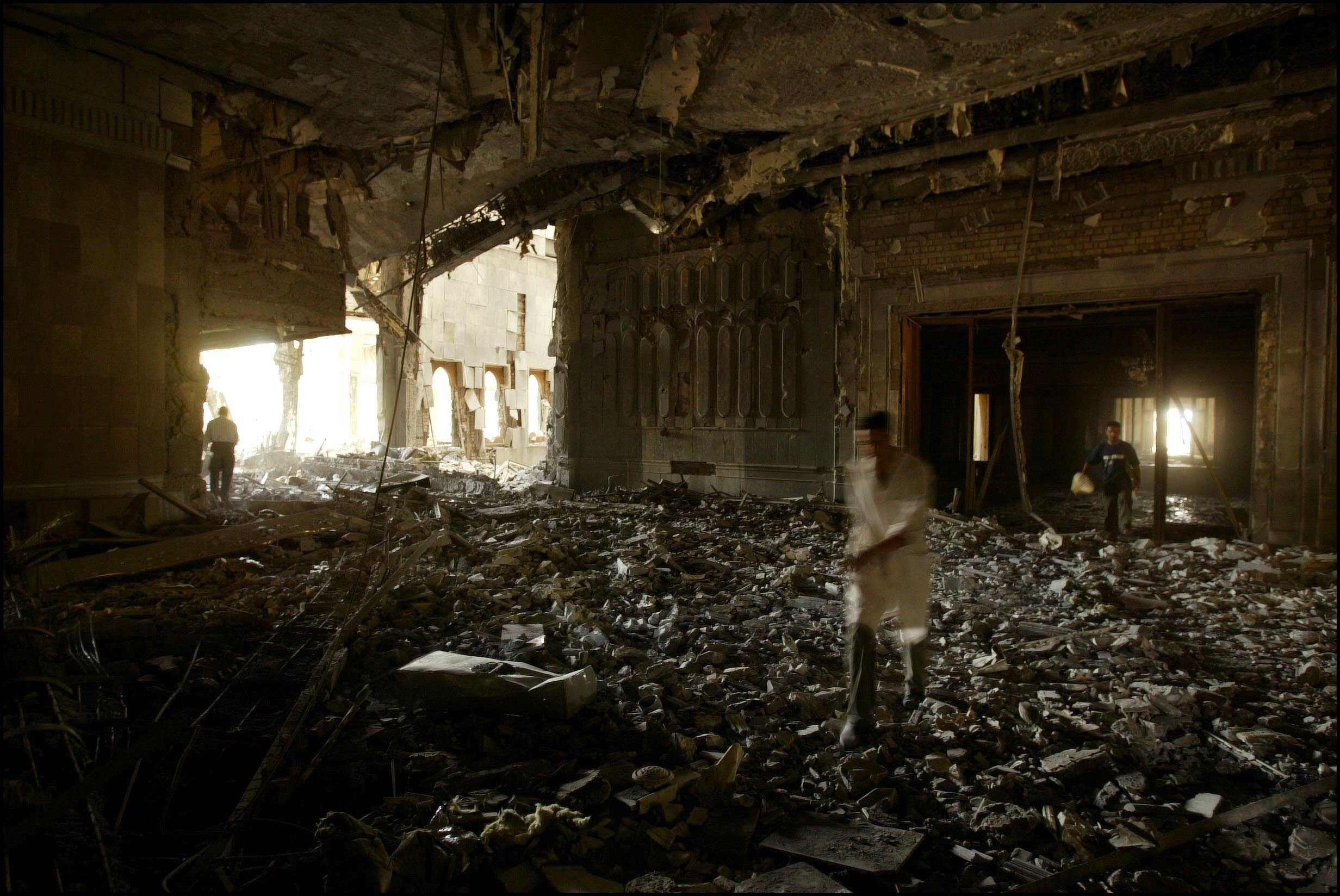
Looking back, Major General Tim Cross told me this week: “One doesn’t know, of course, what would have happened if Jay Garner and I were allowed to continue with our job. We had a plan --- with the security forces, the ones who were most senior would have been removed, but the others were needed at the time to maintain security and would be kept on: but Paul Bremer got rid of them, and we saw the consequences.
“We were also trying to get the Iraqis engaged in politics to prepare for a transition. But Bremer reversed all that, the time wasn’t right he said. He was going to run the show for a year as a kind of viceroy. The problem was that the people who came to work with him, British as well as American, had little knowledge of local dynamics, the Sunni Shia balance and that led, of course, to huge problems.”
One of the first Iraqi police patrols after the start of occupation took place in the middle of April. Around a hundred officers were expected at the National Police Academy; instead, nearly 2,000, both serving and retired, turned up.
There was confusion, followed by anger when the American military decreed that patrols going out must be unarmed. Most of the Iraqi officers simply refused to set out and many walked off. Among them was Major Rashid Hussein Janabi who said, shaking his head in disbelief: “Do they even realise this is Baghdad?”
I went out with one of the patrols. Twenty-five minutes down the road, we got shot at from two directions and retreated back to base.
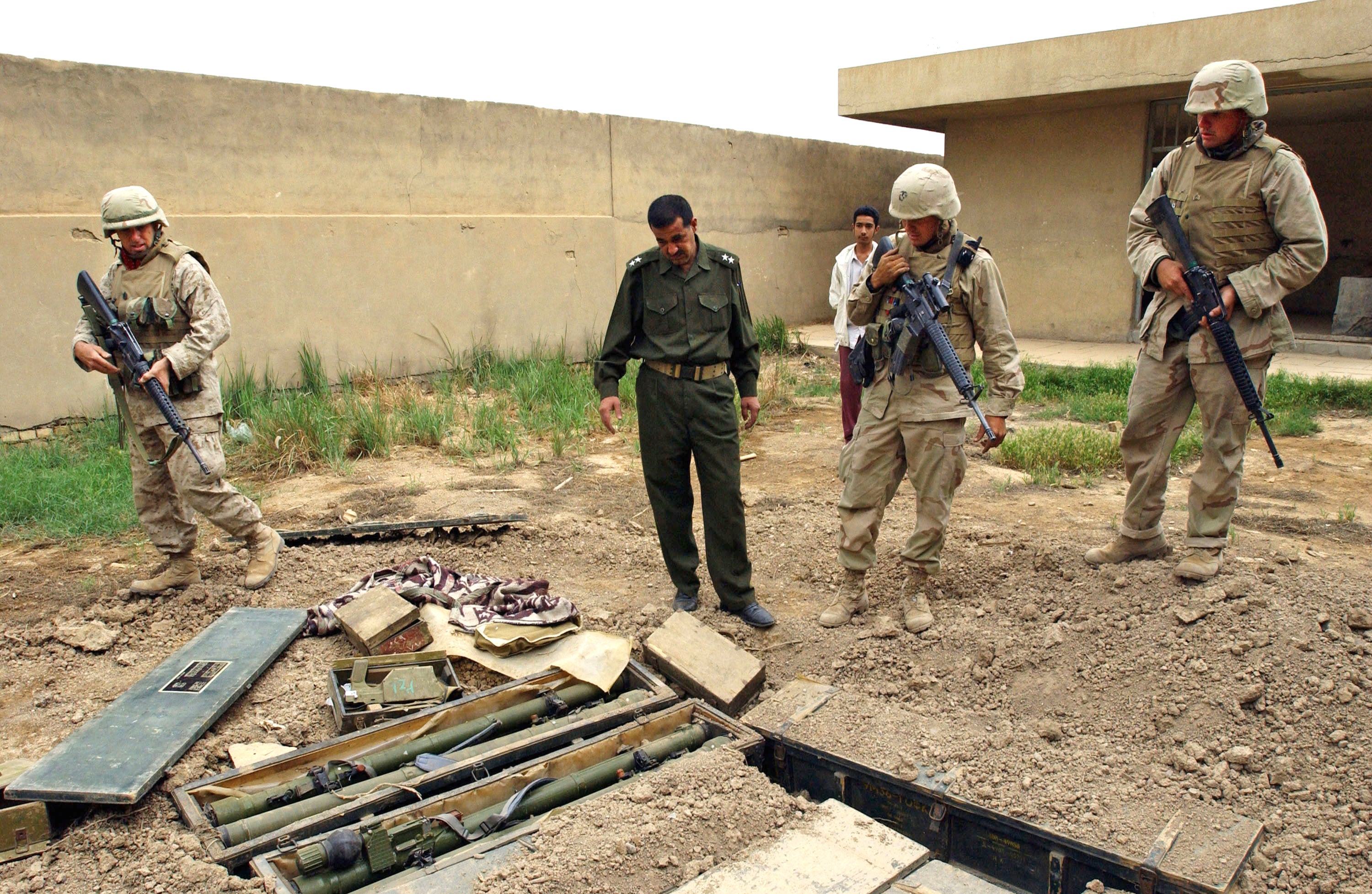
Captain Frank Thorp, an American officer, could not say how many of the officers working were Baath Party members -- one reason being that much of the records were burnt when the mob sacked the ministries.
The conditions were brewing for a perfect storm. Many of the experienced Iraqi police and soldiers sent home under de-Baathification stayed away from the vicious insurgent war which followed. Worse, others joined the Islamist fighters, providing valuable experience and leadership.
One head of Isis military council, Abu Muhanad al Sweidawi, was a former member of the Iraqi military, as was his successor, Abu Ahmad al Alwani. Major Janabi, the disgruntled police officer I met in 2003, died fighting for Isis in Mosul 11 years later.
Within months of the regime’s fall, a savage insurgent war broke out, with bombings and shootings, kidnappings and murders. The death toll began to rise dramatically as Sunni insurgents stepped up their attacks on Western forces.
Then came an incendiary sectarian conflict between Sunnis and Shias Waves of Sunni suicide bombers left Fallujah to wreak havoc on Baghdad, and Shia fighters, some in government-run militias, sought vengeance.
The capital was turning into a charnel house. We would wake up to the sound of explosions, gunfire, the shudder of helicopter blades and the death-rattles from engines of A-10 ‘Warthog’ warplanes. Dead bodies piled up on the streets. Videos of mass beheadings began to circulate. Nowhere was safe. Bereaved families queuing up outside morgues to identify bodies were themselves bombed; medical staff on their way to treat the injured were abducted and shot.
As the BBC’s renowned veteran foreign correspondent John Simpson recalled: “There was, I thought, an atmosphere in Baghdad at the rime which reminded me of the slogan of the ultra-right in the Spanish Civil War 'Long Live Death'”.
For the media, travelling to and from stories would often be a fraught experience – and we had some hairy moments. There were no explicit threats against us, so it was a surprise when rumours began that a hotel being used by foreigners would be targeted by insurgents.
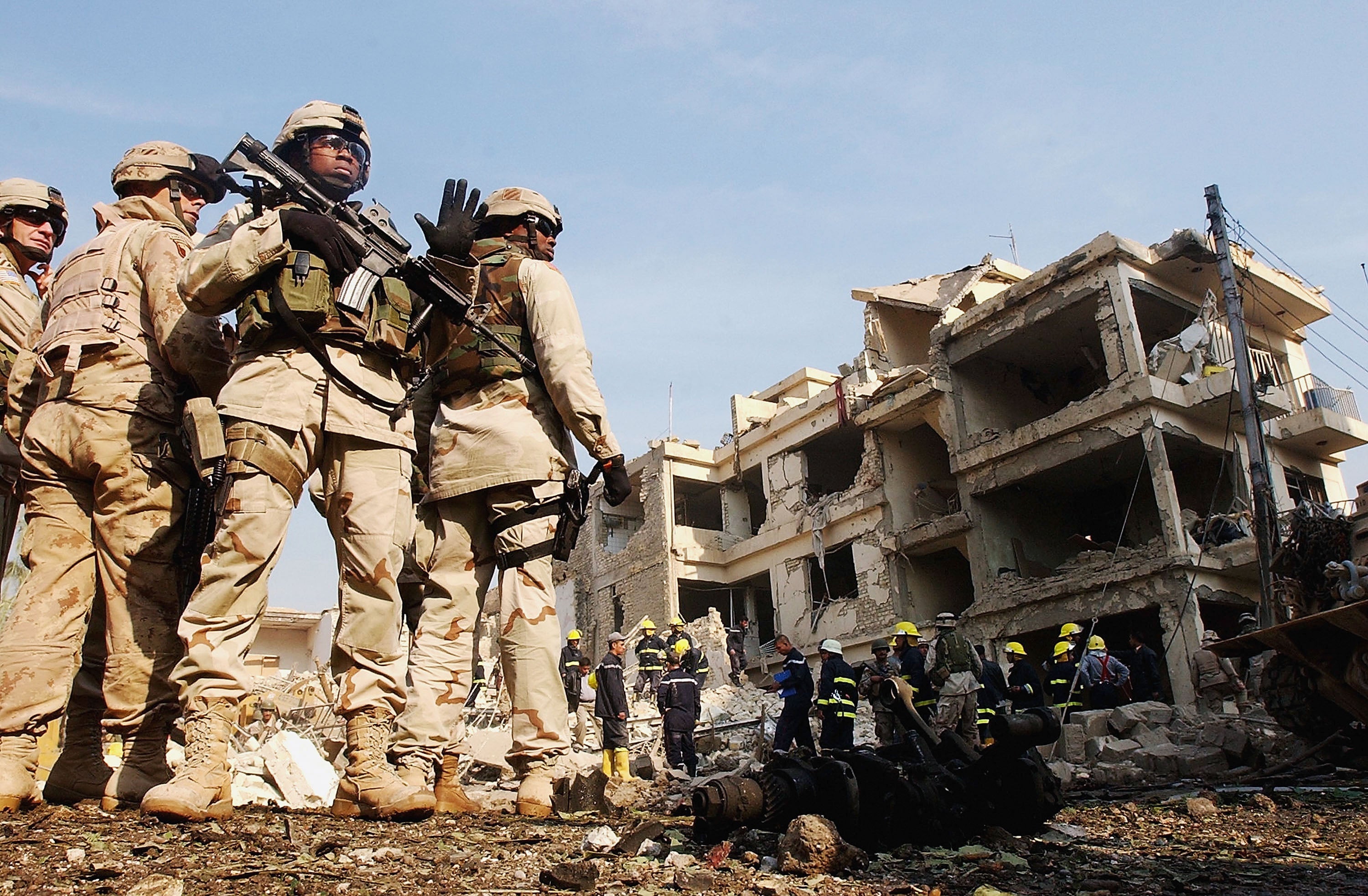
The Independent, along with a few other news organisations, was staying outside the US-protected "Green Zone" so that we could move about more freely and report with less restrictions. This also, however, made us more vulnerable.
At 8.20 on the morning of 18 November 2005 a truck packed with explosives was driven into the blast wall at the back of our hotel, the Hamra, smashing it to bits. The plan was for a second truck with even more explosives to drive through the gap into the complex and blow itself up: that would have brought down the buildings killing those inside.
But the first truck had been packed with so much ordnance (around 400 pounds it was later estimated) that it gouged out a crater in the ground , so the second truck, a two-and-a-half-ton flatbed with a thousand pounds of explosives on board, was not able to get through.
As a result, the second driver blew up his truck, and himself, just behind the hotel buildings. Many of the adjoining houses collapsed, and more than 60 died, mostly hotel employees and their families, people we had got to know.
We journalists, the real targets, escaped the worst of the blast. I was lying in bed reading when a horizontal shower of jagged glass flew over me. My lethargy saved me: I would have been seriously injured or worse if I had been up and about. I escaped with cuts and bruises instead.
There was wild gunfire – which always seemed to follow bombs in Baghdad at the time. We went out after it had died down and found bits of the bombers’ bodies, including a piece of scalp in the swimming pool with thick black bristly hair.
An American commander, Brigadier General Karl Horst, arrived with his men to examine the wreck of the two lorries. Standing in a puddle made by shattered water pipes, we asked him why Sunni insurgents would want to do this.
“What makes you think it was the Sunnis?” the general asked. He told us the Americans thought the bombing had been organised by figures in the Shia-led intelligence ministry, angered by our reports on government death squads.
Just a few days earlier there had indeed been uproar when we reported how 169 beaten and starving captives had been found in an underground prison run by the Shia Badr militia which controlled part of the Interior Ministry.
With some effort we investigated and established later who was almost certainly responsible for the bombing, a senior official. It would have been very easy to organise the attack through middle-men. No one claimed responsibility for the Hamra bomb, which was rare at the time.

Civilian deaths were commonplace. An analysis by the organisation Iraq Body Count published in 2011 found that around 12,300 civilians were killed in 1,003 suicide bombings. The study also found that such attacks killed 60 times as many civilians as soldiers.
Along with publicised military operations, there was a secret war going on between the Insurgents and US and British Special Forces. One key part of it was run by the American General Stan McChrystal, the chief of US Special Forces, from an airbase in Balad, north of Baghdad.
The base was called the “Death Star” because, according to those who worked inside it, "you could just reach out with a finger and eliminate" somebody. On the walls were banks of television screens, “Kill TV”, where footage from image-intensifier cameras showed insurgents preparing for attacks being blown up by air strikes, or being gunned down by undercover hit teams.
General McChrystal would sometimes go on raids himself. He’d discuss a relentless round of night-time raids with fellow officers like British Lieutenant Colonel Richard Williams. then leading an SAS unit in Baghdad. Plans to carry out relentless rounds of night raids, killing or capturing insurgents – especially their commanders – and break the cycle, in General McChrystal's view, of the militant groups "organically" reproducing themselves.
As well as kill and capture operations, the raids yielded highly-valuable intelligence. Agents run by the Special Forces spent weeks winning the confidence of a suspect captured in the "Sunni Triangle" south of Baghdad who knew the location of al-Qaeda leader Zarqawi. This enabled the Americans to carry out an attack that mortally wounded him; the body was brought to Balad.
Zarqawi was succeeded by Abu Ayyub al-Masri, an Egyptian. The flow of foreign fighters into Iraq continued, and militant Islamist groups across the world, from al-Shabaab in Somalia and Boko Haram in Nigeria, began to establish contact with al-Qaeda in Iraq and the leadership in Pakistan where Osama bin Laden was based.
American and British troops continued fighting, but old certainties had frayed and many began to question why they were there. In 2005, at a duty free shop next to the US headquarters, Camp Victory, I met the US Marine, now a gunner “gunny” sergeant who had come to avenge 9/11.
Did he still have that slogan on the back of his flak jacket? “Hell no, that mother’s taken some damage, I’ve got a new one with different writing,” he said. The writing was, he said: “We are fighting here for Halliburton.”
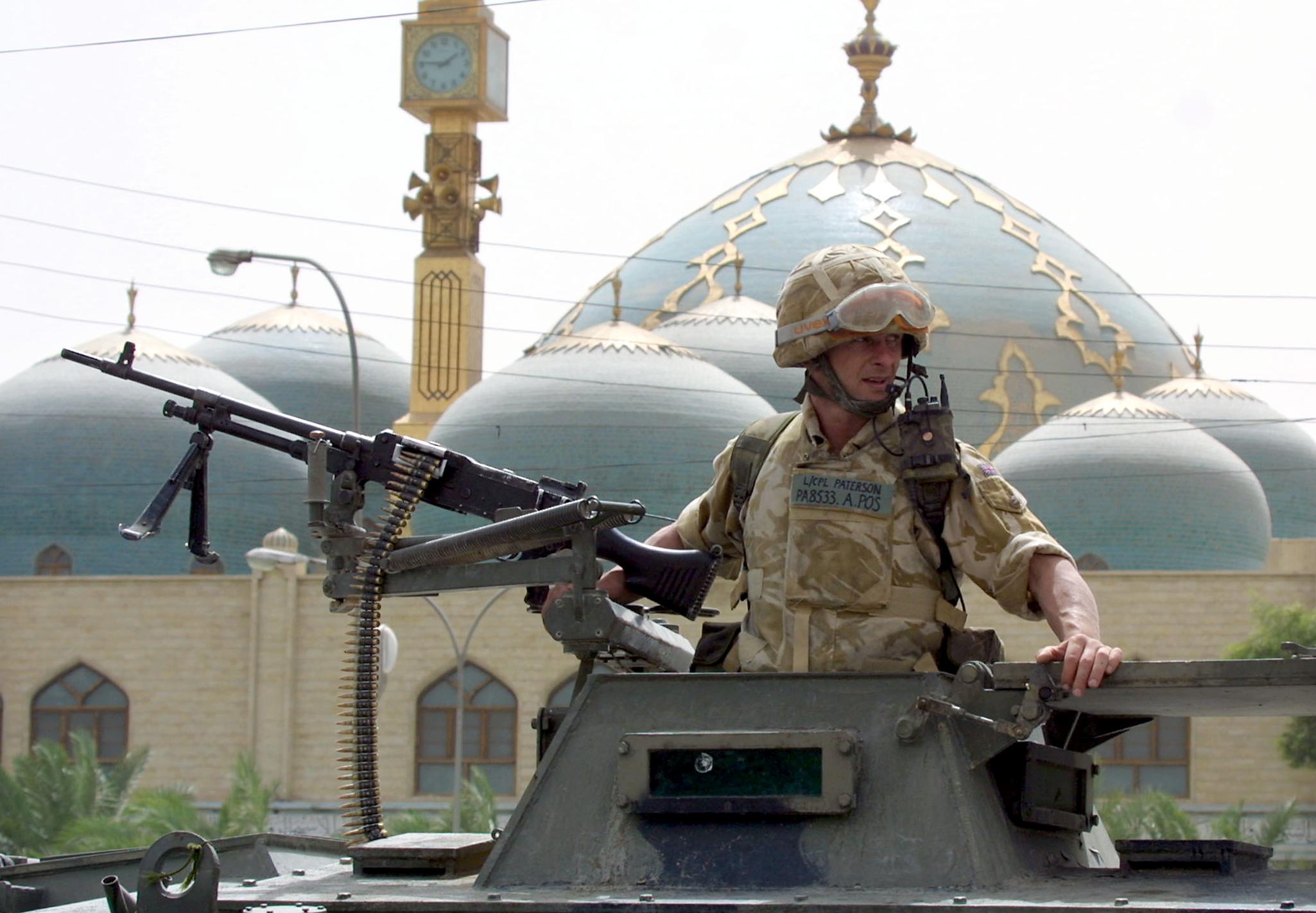
Vice President Cheney was the former CEO and chairman of the board of Halliburton, an American oil services company that received a contract to repair Iraq’s oil infrastructure in the same month the war began.
The name Haliburton had meant nothing to the Marine before. “But I’ve been reading up a bit about what’s going on here, y’now”, he said. Wouldn’t the marine get into trouble for wearing that? I asked. He grinned. “What’re they going to do, send me to Iraq?”
In southern Iraq, under British administration, the violence was initially much lower in scale. That was to change. But in the early years, those of us based in Baghdad would be surprised at how calm, outwardly at least, things seemed in Basra during our trips. The most dangerous part of the journey was the road to Baghdad airport, where cars packed with explosives waited to carry out ambushes. We lost friends there including Marla Ruzicka, an American aid worker who had founded an organisation to chart Iraqi casualties and help the injured.
There were a number of reasons for the lower level of violence in Basra and the south. The attacks against foreign forces were mainly carried out by Sunnis who, despite being little more than 25 per cent of the population, had the whip hand under Saddam. The Shias in the south had no love lost for the departed regime, and while not welcoming occupation, did not harbour the same level of animosity.
Also the British may not have been winning the war of hearts and minds, but they were having rather more success than their American counterparts. There was a growing feeling among many British military and diplomats that the aggression of the American forces was fuelling the violence. Some of the American behaviour was appalling. The shocking photos and graphic accounts of the abuse of prisoners by US military and the CIA in Baghdad, including torture and sexual assaults, certainly added to Iraqi anger. The notorious scenes at the Abu Ghraib prison, with its indelible photographs of American soldiers posing with naked, humiliated prisoners, is still being cited today by the Kremlin in response to Western condemnation of Russian atrocities in Ukraine.
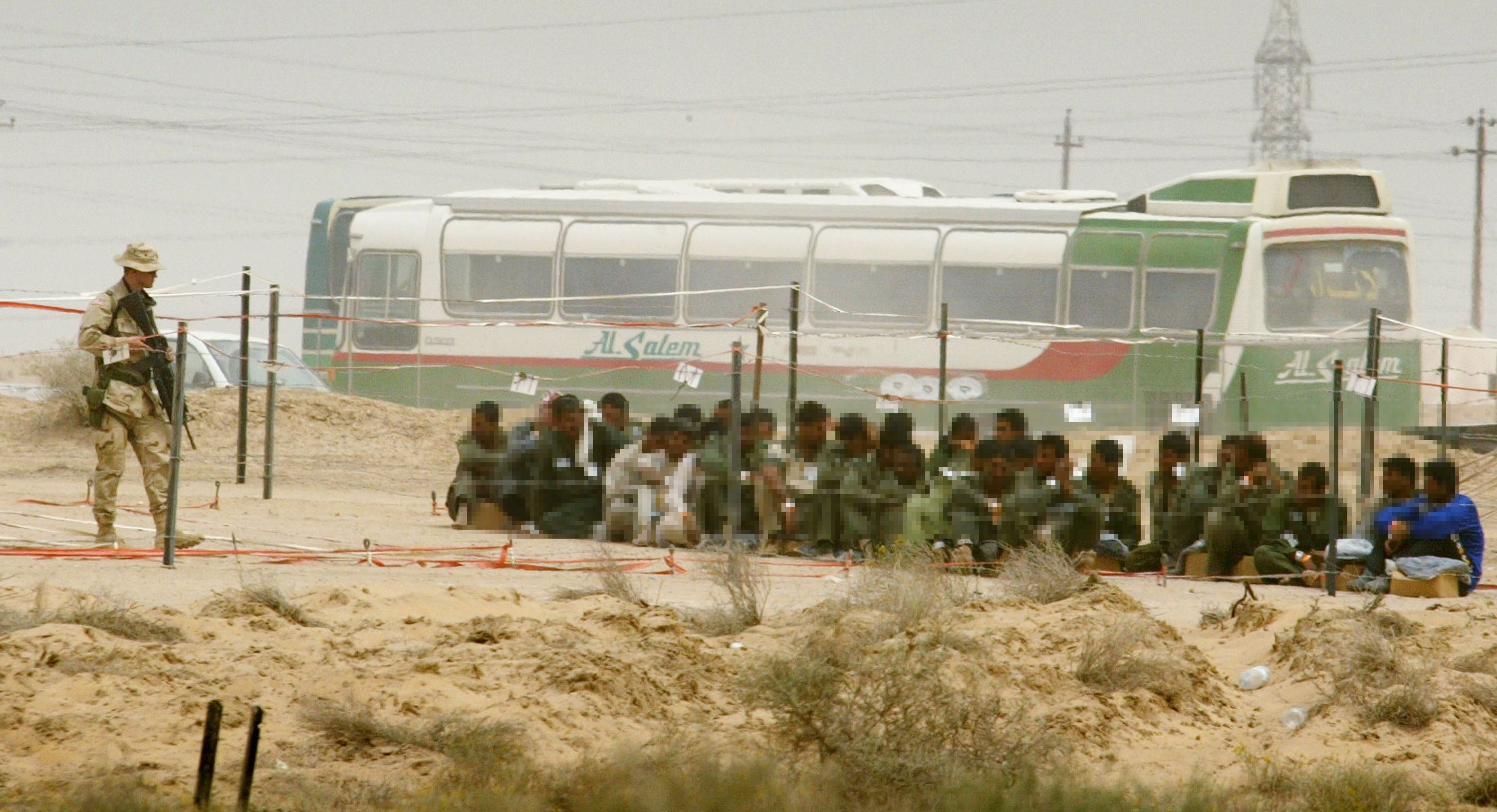
The British were certainly not entirely blameless. Baha Musa, an innocent man, died in British custody in 2003 with 93 injuries to his body. In 2006 Corporal Donald Payne became the first member of British army to plead guilty to a war crime, and was jailed for a year and expelled from the army, for his part in the death.
But there was no large-scale prisoner abuse by our forces as happened in Baghdad and elsewhere. And there were complaints from the British about inmates at the American-run Camp Bucca, in the British controlled south, being held without evidence. The camp became a breeding ground for a large number of future Isis fighters, including its Caliph, Abu Bakr al-Baghdadi.
The Americans, in turn, accused the British of being “too soft”. They complained about deals being done with the Shia militias, the Mehdi Army and the Badr Brigade, and not enough attention being paid to growing Iranian influence. Tensions grew. One exasperated American officer left a meeting in Baghdad with his British counterparts snapping “Each time I hear the words the ‘Northern Ireland experience’ I want to reach for my gun.”
The fragile truce in the south between the British and the Shia militias did not last. Improvised Explosive Devices (IEDs) with deadly "shaped charges" began to be used against the British. The Shia militias carried out abductions, torture and murders. There was a dramatic surge in murders of women, "honour killings" in particular.
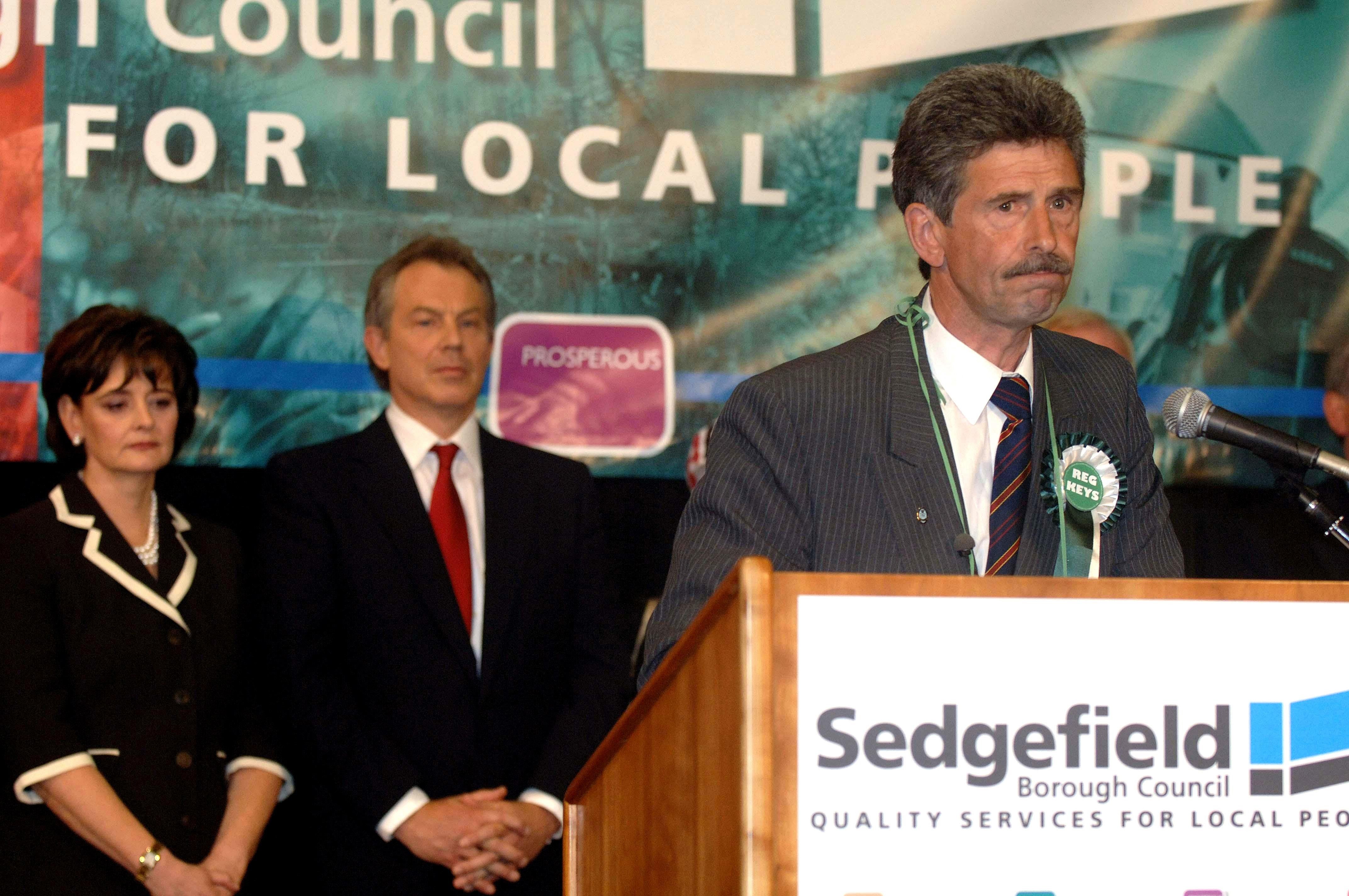
Attacks on British forces continued to rise. In the town of Majr-al-Kebir, 80 miles from Basra, six members of the Royal Military Police (RMP) were killed by gunmen leading a mob. One of those to die was Lance Corporal Thomas Keys. His father, Reg Keys, stood in the 2005 general election as an anti-war candidate in Sedgfield, Tony Blair’s constituency. The prime minister won. The result would have been closer if the Conservative and Liberal Democrat candidates had stood aside as was mooted at one stage. Keys was praised for his impassioned, yet dignified, conduct.
In his speech on election night, widely watched on TV, he said: “If this war had been justified under international law I would grieve and not have campaigned. If WMDs had been found in Iraq I would grieve and not campaign. Tonight there are lessons to be learned.”
The cameras panned in on Blair, standing ashen-faced, with Cherie Booth clutching his hand, as, to a hushed room, Keys read out names of his son and his dead comrades, and ended with the words: “And I hope in my heart that one day the prime minister may be able to say sorry."
Join our commenting forum
Join thought-provoking conversations, follow other Independent readers and see their replies
Comments